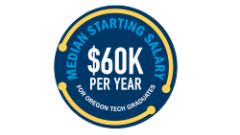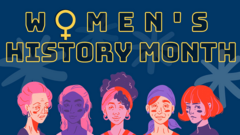Digital Millennium Copyright Act and Federal Penalties
Copyright infringement and unauthorized access to digital materials at Oregon Tech may be grounds for legal action. Unauthorized distribution of copyrighted material, including peer-to-peer file sharing, may be subject to civil and criminal liabilities.
Civil and Criminal Penalties for Copyright Violations
Copyright infringement is the act of exercising, without permission or legal authority, one or more of the exclusive rights granted to the copyright owner under section 106 of the Copyright Act (Title 17 of the United States Code). These rights include the right to reproduce or distribute a copyrighted work. In the file-sharing context, downloading or uploading substantial parts of a copyrighted work without authority constitutes an infringement. Penalties for copyright infringement include civil and criminal penalties. In general, anyone found liable for civil copyright infringement may be ordered to pay either actual damages or "statutory" damages affixed at not less than $750 and not more than $30,000 per work infringed. For "willful" infringement, a court may award up to $150,000 per work infringed. A court can, in its discretion, also assess costs and attorneys' fees. For details, see Title 17, United States Code, Sections 504, 505. Willful copyright infringement can also result in criminal penalties, including imprisonment of up to five years and fines of up to $250,000 per offense.
For more information, please see the website of the U.S. Copyright Office at www.copyright.gov, especially their FAQ's at www.copyright.gov/help/faq.
General Highlights of the The DMCA Act:
- Makes it a crime to circumvent anti-piracy measures built into most commercial software.
- Outlaws the manufacture, sale, or distribution of code-cracking devices used to illegally copy software.
- Does permit cracking copyright protection devices to conduct encryption research, assess product interoperability, and test computer security systems.
- Provides exemptions from anti-circumvention provisions for nonprofit libraries, archives, and educational institutions under certain circumstances.
- In general, limits Internet service providers from copyright infringement liability for simply transmitting information over the Internet.
- Service providers are expected to remove material from users' web sites that appears to constitute copyright infringement.
- Limits liability of nonprofit institutions of higher education -- when they serve as online service providers and under certain circumstances — for copyright infringement by faculty members or graduate students.
- Requires that "webmasters" pay licensing fees to record companies.
- Requires that the Register of Copyrights, after consultation with relevant parties, submit to Congress recommendations regarding how to promote distance education through digital technologies while "maintaining an appropriate balance between the rights of copyright owners and the needs of users."
- States explicitly that "[n]othing in this section shall affect rights, remedies, limitations, or defenses to copyright infringement, including fair use..."






